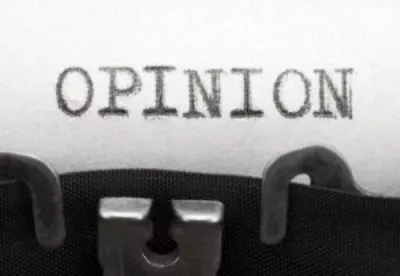
Why Suing the Media For Defamation is Usually Not Your Best Option
This page has been peer-reviewed, fact-checked, and edited by qualified attorneys to ensure substantive accuracy and coverage.
If you were the subject of a false or less-than-flattering news story, chances are you are embarrassed (and possibly infuriated). Your first thought was probably, “How can I remove this article from google?” or “Can I make them publish a defamation retraction?” You might even be wondering if you have a case for a defamation or libel lawsuit.
Most clients who contact our firm about removing online news articles want to know if they can sue the news outlet who published the story. In the vast majority of cases, the answer is no.
It is difficult to sue the media because they have many legal protections. News outlets generally have the following defenses and privileges at their disposal:
- The Substantial Truth Doctrine;
- The Fair Report Privilege;
- Statute of Limitations;
- The Wire Service Defense;
- Opinion & Fair Comment and Criticism Privilege;
- The Newsworthiness Defense to Invasion of Privacy Claims;
- Historical Accuracy of Arrests and Criminal Charges.
In this article, we will describe each of these defenses, with defamation examples from actual cases. We will also share some insight into ways that online news content may be removed or suppressed from Google.
Before we dive into the privileges available to news media defendants, I will start with a review of libel – the legal concept typically at play.
Let us help. Contact us for a free consultation with an intake specialist to help you explore your removal options and craft an effective strategy.Are you the target of defamation?
What is Libel?
When people contact us about suing a news outlet, they are usually concerned about libel. Put simply, libel is a form of defamation expressed in writing that injures a person’s reputation. If a person publishes a false statement about you and it injures your reputation or hurts your business, you may be a victim of libel.
All U.S. states have civil libel statutes and 13 states have criminal defamation laws. In states with criminal libel laws, defendants can face serious criminal consequences, including jail.
To prove libel, a plaintiff must prove the following four elements:
- The statement or assertion was untrue
- The false statement made by the defendant was unprivileged
- The defendant made the statement with at least negligence, and in some cases actual malice, and
- The false statement caused harm to the individual’s reputation leading to defamation damages. Or, the statement was so inherently defamatory, that the plaintiff does not need to prove damages (also known as defamation per se).
Proving the third element of libel, the defendant’s intent, can be more difficult for a public figure or public official. The law assumes public officials have taken the risk of being talked about – in furtherance of politics, social policy, and the public’s right to stay informed.
Public officials must prove a defendant acted with actual malice when making the statement. Actual malice will be found when a defendant published a defamatory statement with knowledge that it was false or reckless disregard for its truthfulness. This is a higher standard of proof than that required of private individuals, which requires a showing that a defendant published a defamatory statement with ordinary negligence.
The landmark case of New York Times v. Sullivan provides insight into the reasoning behind the actual malice rule:
“A rule compelling the critic of official conduct to guarantee the truth of all his…assertions…leads to a comparable ‘self-censorship’ . . . Under such a rule, would-be critics of official conduct may be deterred from voicing their criticism, even though it is believed to be true and even though it is in fact true, because of doubt whether it can be proved in court or fear of the expense of having to do so.”
The Supreme Court’s ruling in New York Times v. Sullivan outlines the crucial balancing between one individual’s constitutional right of free speech and another individual’s right to sue for libelous statements. News media, in particular, have been afforded leeway to publish what they feel is newsworthy, to prevent the chilling of free speech.
This leads us to the most important part of this article: an overview of the defenses and privileges available to news media defendants.
Online Reputation Management Tip: By creating your own content, you can take advantage of the same suppression strategies used by reputation management companies. Suppression is the act of creating other positive content to bury unwanted or negative content from appearing in your search results. You can create a blog and take advantage of social media sites to create a more positive online reputation for yourself and your business.
Why Suing the Media is Usually Not the Best Option
News media defendants have the advantage of several privileges, which means they may be able to get away with potentially defamatory language if they successfully assert at least one defense.
In this section, I will explain each available defense, as well as provide actual case examples for each privilege. We recommend that anyone dealing with the media understands these defenses before demanding the removal of content from their publications.
Substantial Truth Doctrine
Usually, truth is a defense to defamation. If a defamer can prove that their statements were true, they will prevail in court. But, a statement does not have to be accurate in every conceivable way to be considered “true.” This is known as the substantial truth doctrine.
In Masson v. New Yorker Magazine, the Supreme Court held that “minor inaccuracies do not amount to falsity so long as ‘the substance, the gist, the sting, of the libelous charge be justified.”
As a result of this doctrine, courts look at how the inaccurate statement will affect readers. If the inaccuracy would not affect the reader differently than the literal truth, then the statement is substantially true. Sometimes there can be an exception to this doctrine if the statements published are literally true, but when read together, they create a false inference about the plaintiff. MacElree v. Phila. Newspapers, 544 Pa. 117, 674 A.2d 1050 (1996).
Substantial Truth Doctrine Case Example
An example of the substantial truth doctrine in action is Collins v. Detroit Free Press, Inc. In this case, the plaintiff was the Representative for Michigan’s 15th Congressional District, located in Detroit. While seeking reelection, the plaintiff was interviewed by a Washington, D.C. journalist and news service. The interview, which was recorded and transcribed, was later provided to the defendant, Detroit Free Press, Inc.
When the Detroit Free Press covered the interview, they quoted the plaintiff as stating, “All white people, I don’t believe, are intolerant. That’s why I say I love the individuals, but I hate the race…” Weeks later, after the plaintiff lost the primary election, the defendant published a retraction, clarifying that the plaintiff actually said, “All white people, I don’t believe, are intolerant. That is why I say, I love the individuals, but I don’t like the race.”
The court recognized that hate and dislike have different meanings, but determined the difference between the two quotations was not “material.” They found the substantial truth doctrine applied because “the gist of the actual statement was the same as the subject misquotation.”
Fair Report Privilege
If a news publication reports something defamatory from an official public document (or a statement made by a public official), the fair report privilege protects the publication from liability. The scope of the privilege varies by state, so it may be helpful to review your state’s specific defamation laws.
According to the Digital Media Law Project, the fair report privilege exists “to encourage public scrutiny of governmental activities through fair and accurate reporting.” The privilege permits media to report without forcing them to ascertain the truth of every statement made during a government proceeding.
Fair Report Privilege Case Example
In Nix v. ESPN, Inc., the 11th Circuit applied the fair report privilege to an ESPN report about a Major League Baseball (MLB) investigation. The plaintiff, Nix, operated a sports training center that sold health supplements. In 2013, the MLB launched an investigation into the sale of performance-enhancing drugs to MLB players, which targeted Nix’s business, among others.
Nix filed a tortious interference suit against the MLB, which was reported by the Associated Press. ESPN republished the story and claimed, “the suit admits Nix and his company used bioidentical insulin-like growth factor (IGF-1), which is derived from elk antlers and is on baseball’s list of banned substances.”
Nix brought suit against the publications seeking a retraction and damages. He argued that the defendants wrongly implied that he sold illegal drugs because their report “did not distinguish between natural and synthetic forms of IGF-1.”
The court found that while Nix sought “to distinguish between natural and synthetic IGF-1, the MLB’s list [of performance-enhancing substances] does not make such a distinction.”
Because “Nix’s complaint in his suit against the MLB stated that his products contained IGF-1…and the MLB’s list of banned substances includes all isomers of IGF-1…the statements were…correct and fell within the protection of the fair report privilege.”
Invasion of Privacy Fact: Oftentimes, publications will not remove a story if they view it as a matter of public concern. Even private people can find themselves in the glare of publicity and involved in an issue of public concern. That can happen when an individual is swept up in a public policy issue that’s of general interest to the community.
Statute of Limitations Defense
As with most legal issues, defamation lawsuits must be filed within a certain amount of time. The statute of limitations defines the amount of time a plaintiff can wait before filing a lawsuit after the events occurred. For instance, if you plan to sue a publication over a story that was written 10 years ago, you are almost always outside of the statute of limitations.
In most states, a plaintiff only has one year to file a lawsuit after defamation occurs, but some states have statutes of limitation for up to three years.
Statute of Limitations Case Example
In the Nix v. ESPN case, the fair report privilege was not the only defense addressed by the court. The defendants also argued that Nix’s lawsuit, filed 20 months after the article’s publication, was outside of New York’s one-year statute of limitations.
The challenging issue was that the defamation claim was timely under Florida defamation law, which provides two years to bring a defamation suit. Since the case involved a Florida plaintiff, New York defendants, and the audience was nationwide, the court had to determine which state’s rules applied.
The court looked to four factors to determine which state had the “most significant relationship” to the case: (1) the place where the injury occurred; (2) the place where the conduct occurred; (3) the location of the parties; and (4) the relationship of the parties.
The court determined that, while the information was accessible anywhere online, it caused the greatest injury in New York. Also, the information was originally shared by the Associated Press, headquartered in New York. The location and relationship of the parties were “neutral” because the plaintiffs and defendants were from different states and had no connection aside from the lawsuit.
Ultimately, the court found that the most significant relationship test weighed in favor of New York – and applied New York’s one-year statute of limitations.
Content Removal Tip: Increase your chances of getting content removed with a court order by (1) sue the right person (not the online platform); (2) identify the poster’s legitimate contact information; (3) request injunctive relief authorizing removal of the content; and (4) ensure the order references each offending URL.
Wire Service Defense
The wire service defense protects media outlets that republish content from reputable sources like Associated Press.
As long as the media does not alter the story or have any reason to doubt the truthfulness of the content, they can use the wire service defense.
Wire Service Defense Case Example
The wire service defense was discussed at length in Howe v. Detroit Free Press. The case arose from an article published in the San Jose Mercury News in 1986 about major league baseball player Steve Howe (son of the plaintiff) and his struggles with cocaine.
The reporter wrote that Steve “was the eldest of five children in a family that was a prisoner of his father’s drinking problems.” The Detroit Free Press republished the article, prompting the plaintiff’s defamation lawsuit.
On appeal, the court determined that the wire service defense precluded liability on behalf of the defendants. They reasoned that “no local news organization could assume the burden of verifying every news item reported…by established news-gathering agencies and continue to satisfy the demands…for up-to-the-minute global information.”
To require “local news organizations to independently verify the accuracy of every wire-service release…force smaller publishers to confine themselves to stories about purely local events and would make it difficult for smaller, local news organizations to compete with publishers who could afford to either verify every story or assume the risk of litigation.”
Opinion & Fair Comment Privilege
The First Amendment protects the right of news organizations (and individuals) to voice opinions, criticize others, and comment on matters of public interest. Even offensive statements are protected as long as they are “pure opinions” – statements that cannot be proven true or false. This protection is otherwise referred to as the opinion defense and fair comment privilege.
For the sake of example, say you make the comment, “I think the mayor is a jerk.” Such a statement expresses a pure opinion that could neither be proven nor disproven and is thus protected speech.
But, a statement that implies false underlying facts may still be defamatory. For instance, stating “The congressman is a drug dealer” can lead a reader to assume that you must have some facts to back up your claim. Unless you have facts that you are willing to share in support of your claim, you could be liable for defamation.
Opinion & Fair Comment Privilege Case Example
The opinion and fair comment privilege came up in Piscatelli v. Smith. In 2006 and 2007, the City Paper published two articles revisiting the double murder trial of Anthony Miller. Both articles “more than hinted that Piscatelli [plaintiff] may have been involved in the murders, despite the fact that he was not charged criminally.”
The City Paper commented that “the double murder remains ‘mysterious,’ despite Miller’s conviction; Piscatelli may have had a motive to kill [one of the victims]; and [the victim’s mother] believed Piscatelli may be involved in her son’s murder.”
The court reminded Piscatelli that, “[A] newspaper…may…express a fair and reasonable opinion or comment on matters of legitimate public interest. The reason…is that such discussion is in the furtherance of an interest of social importance, and…is held entitled to protection…”
The court found it obvious that “the reporting about the murders and…trial…are matters of legitimate public interest.” As such, the court found the articles fell under the purview of the fair comment privilege.
Newsworthiness Defense to Invasion of Privacy Claims
Even if a defamation claim is unavailable, sometimes, you may still have a claim for invasion of privacy. Invasion of privacy for publication of private facts can apply in cases where the revealed information is true, yet meant to remain private.
For example, writing about a person’s disease status, sexual orientation, marital problems, or financial troubles may lead to liability for invasion of privacy.
Unfortunately, an invasion of privacy claim will not be successful if the facts revealed are newsworthy. A fact is considered newsworthy if it discusses a matter of legitimate public concern.
Newsworthiness Defense Case Example
The newsworthiness defense came under fire in the case of Smith v. NBC Universal. The plaintiff, Smith, was a performer at Sea World who held the copyright to a video of orcas attacking him during a performance at SeaWorld. The attack was reported in the news.
An audience member who recorded the performance gave Smith a copy of the video. Smith registered the video with the U.S. Copyright Office and licensed the video to an ABC affiliate to broadcast on-air. Over the coming years, Smith received fees from several news outlets to reproduce the video.
Yet, Smith noticed that some media outlets were airing portions of the video without a license. When that occurred, Smith filed suits related to the unlicensed airings of the video. In addition to his copyright claims, Smith alleged violations of his privacy rights.
When assessing Smith’s claims, the court determined that “Smith could not have a reasonable expectation of privacy in a video that he had previously licensed for broadcast on national television.” In doing so, he made an otherwise private event newsworthy.
Arrests & Criminal Charges
In general, articles that report on arrests or criminal charges are newsworthy. This is true even if the charges are later dropped or the public record expunged – because the historical record of the arrest is still factual.
Arrests & Criminal Charges Case Example
In Martin v. Hearst Corp, plaintiff Martin was arrested in Connecticut on charges related to various drug offenses. While the reported arrest was accurate at the time of publishing, the charges were later dropped and removed from her record.
Since Connecticut’s erasure statute provided that “any person who [was] the subject of such an erasure shall be deemed to have never been arrested…” Martin asked the court to determine whether the news articles were false or misleading.
The court rejected Martin’s request for removal, reasoning that the erasure statute was to “bar the government from relying on a defendant’s erased…records in a later trial.” The court determined that the statute “does not…undo historical facts or convert once-true facts into falsehoods.”
The court stipulated, “the statute does not render historically accurate news accounts of an arrest tortious merely because the defendant is later deemed as a matter of legal fiction never to have been arrested.”
Effective Alternatives to Remove Defamatory Content From News Publications
There are often alternatives to litigation for anyone wanting to remove defamatory content from news publications. When clients contact us wanting to know how to remove negative news articles from the web, we often recommend contacting the publication to request removal or engaging in online reputation management.
When contacting any news outlet, the most important thing you can do is build a friendly rapport. The editor will likely be the decision-maker with respect to removing an article or publishing a retraction, so remember to be cordial.
Also, prepare to state your case before you make the call. Editors are very busy and do not appreciate anyone who wastes their time. Start with a concise and powerful statement about your request. Then ask for their email address to follow up with necessary documentation.
If the publication still refuses your request, there is another option. You can work with an online reputation management (ORM) professional. While this method requires an ongoing investment, it can help to restore your online reputation.
Minc Law Online Reputation Management Tip: To learn more about ORM, check out our article, “Online Reputation Management vs. Legal Services to Remove Online Content.”
Contact an Experienced Online Defamation Attorney for More Information
At Minc Law, we rarely recommend lawsuits against news media defendants. But, we also recognize that every situation is different. Sometimes a media outlet can be held liable for unlawfully printing a story.
★★★★★
“A news editor rarely wants to get a call from an attorney, but Dorrian Horsey was persistent and polite, provided all the relevant details we needed and we were able to come to a resolution that was satisfactory for her client and upheld the standards of our news organization. October 26, 2021Noah R. Bombard, MassLive Managing Editor
To find out more about your options, the cost to remove a news article, whether your case warrants a libel suit, or how to improve your chances of getting news articles removed, contact the experienced online defamation attorneys at Minc Law today.






